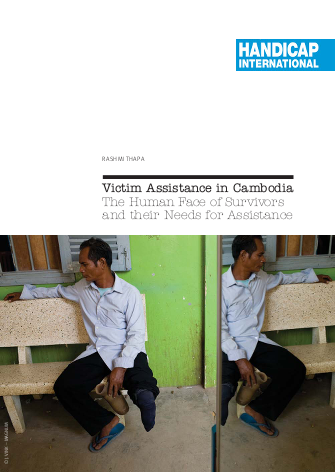
A number of legally binding treaties and policies have been put in place to end the suffering of innocent people like Thi and provide needed assistance to prevent people from making extreme and life threatening decisions. These treaties, such as the Mine Ban Treaty (MBT), the Optional Protocol II on the Convention on Conventional Weapons, Convention on Cluster Munition (CCM), not only endeavour to protect, prevent and provide assistance to victims of landmines but also oblige State Parties to clear fields, destroy stockpiles, report on progress and so on. Signed at different periods of times, the MBT and CCM in particular outline, for the first time, one of the most comprehensive obligations on victim assistance (VA). Despite the challenges that various State Parties to the conventions have faced, their commitment to constantly review and re-evaluate different articles demonstrates the efforts various stakeholders have put towards improving VA. This alone reflects the success of a thought-through coordinated coalition led by various civil society and non-government organizations that manifested in the creation of the MBT. This coalition called International Campaign to Ban Landminesii (ICBL) has resulted in a number of successful campaigns, programmatic interventions, research and monitoring of the obligations with the MBT. Handicap International is one such organization. Over the past three decades, Handicap International (HI) has spearheaded VA, which has evolved over time. Starting with physical rehabilitation to immediate survivors after an accident, HI embraced the global approach transcending victim assistance with disability in general. In particular, after the formation of ICBL and the ratification of MBT in 1997, HI broadened its scope towards advocacy along with several other organizations. HI also renewed its operations towards inclusive services of physical rehabilitation, psychological and socio-economic services to victims of landmines, explosive remnants of war and of late, cluster munition. Eventually, the organization became the face of VA. However, throughout its evolution, HI has kept its service open to all people living with disabilities including victims of conventional weapons.